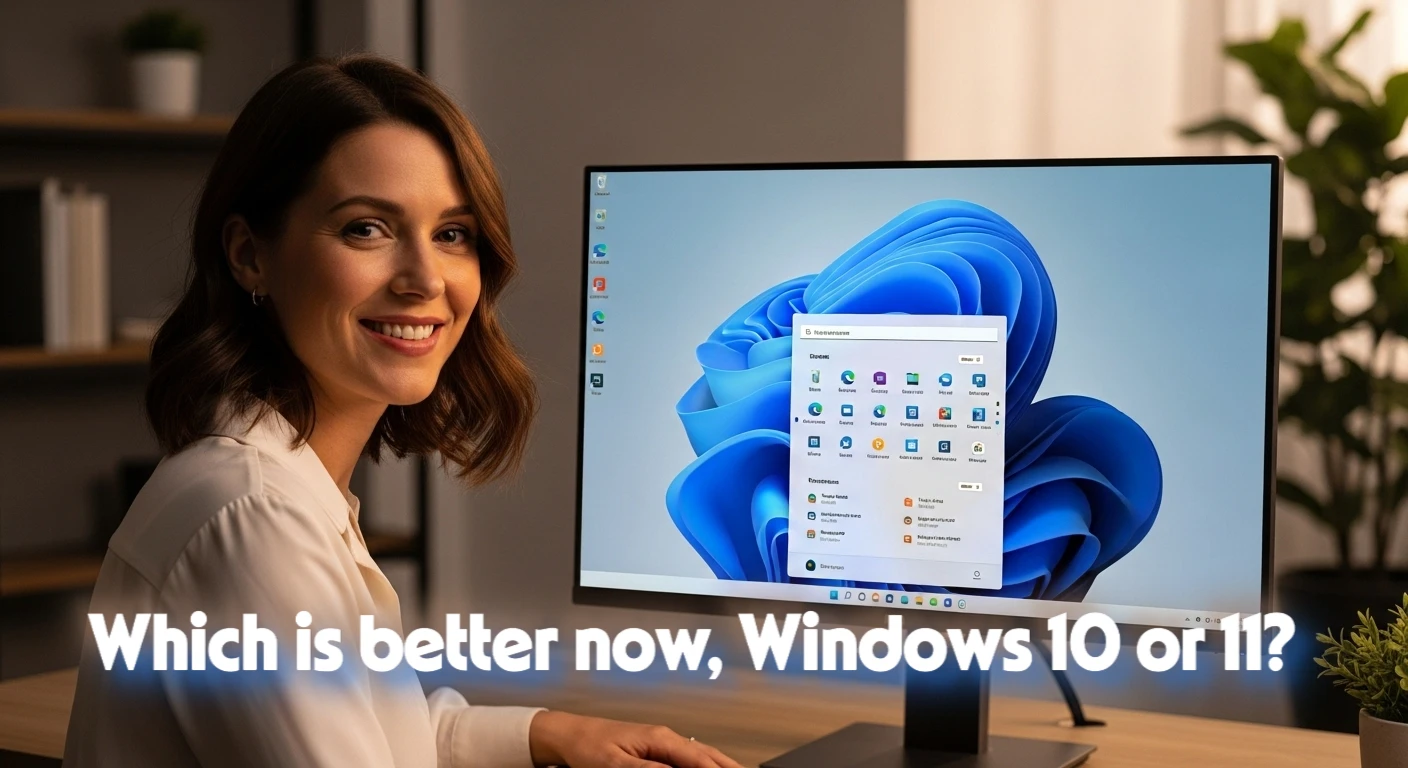If you’re wondering whether it’s better to stick with Windows 10 or move on to Windows 11 in 2025, you’re not alone. Millions of people are facing this exact question right now, especially since Microsoft has already announced that Windows 10 support will officially end on October 14, 2025.
So, let’s break down the pros and cons in simple terms, so you can decide what’s best for you.
Also Read: What are the negatives of upgrading to Windows 11?
The End of Windows 10: What It Means for You
Windows 10 has been around since 2015 and has served faithfully for nearly a decade. But the truth is, it’s nearing its retirement. After October 2025, Microsoft will stop releasing security updates and new features. That means you can technically keep using it, but you’ll be at greater risk of viruses, malware, and compatibility issues.
Why Windows 11 Stands Out
Windows 11 is not just a cosmetic update. It’s a platform Microsoft is actively building for the future, and here’s why it matters:
- Security First: Windows 11 requires TPM 2.0 and modern processors, making it tougher for hackers to exploit.
- AI Features: From Copilot integration to smarter apps like Photos and Paint, AI is baked right into the system.
- Modern Design: Rounded corners, better multitasking tools, and cleaner layouts make everyday use smoother.
- Ongoing Support: Windows 11 will keep receiving updates, features, and fixes, unlike Windows 10 after 2025.
Quick Comparison: Windows 10 vs Windows 11
| Feature | Windows 10 | Windows 11 |
|---|---|---|
| Support End Date | October 14, 2025 | Ongoing |
| Security Updates | Stops after 2025 | Active & Future-Proof |
| AI Features | None | Built-in Copilot, smarter apps |
| Performance | Stable, but aging | Optimized for new CPUs |
| Design | Classic & familiar | Modern, sleek UI |
| Hardware Requirements | Runs on older PCs | Requires TPM 2.0 & newer CPUs |
Should You Upgrade Now?
Here’s a simple way to look at it:
- If your PC is compatible: Go for Windows 11. It’s safer, more modern, and future-proof.
- If your PC is not compatible: You can stay on Windows 10 for now, but plan for a hardware upgrade before October 2025.
Final Thoughts
Windows 10 has been reliable, but in 2025, Windows 11 clearly takes the lead. Not just because Windows 10 is reaching end-of-life, but because Windows 11 is designed for what’s next—better security, better design, and smarter features.
If your device can handle it, upgrading sooner rather than later will save you from the last-minute rush when support ends.
FAQs
Yes, but only until October 14, 2025. After that date, Microsoft will stop providing security updates, which means your computer will be more vulnerable to threats.
If your PC is compatible, yes. Windows 11 offers better security, ongoing updates, and modern features that Windows 10 won’t get anymore.
You can continue using Windows 10 for now, but it’s smart to plan for a hardware upgrade before support ends. This way, you won’t be caught off guard.











